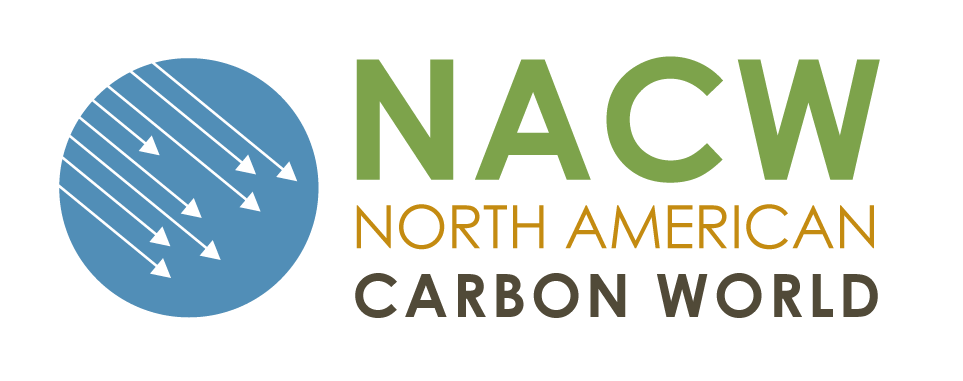(Para ver la página en Español, por favor cambie las opciones de idioma en la parte superior del sitio web)
The Reserve is the largest, most respected registry in North America with five protocols applicable for use in Mexico. Carbon offset credits registered under these protocols are issued as Climate Reserve Tonnes (CRTs) and may be transacted for voluntary purposes in Mexico, the U.S., and globally.
The Reserve offers protocol-specific, customized training events upon request. Training topics include Protocol Overview, Social Safeguards, Verification Guidance, Inventory Development, Cost Benefit Analysis, Climate Change, and Carbon Market Basics. To learn more information and to request a training, please contact the Reserve at [email protected].
| Protocol and Link to Further Information | Current Version Adoption Date |
|---|---|
| Boiler Efficiency | November 1, 2016 |
| Forest | October 5, 2022 |
| Landfill | October 5, 2022 |
| Livestock | September 29, 2010 |
| Halocarbons | June 16, 2021 |
Please contact the Reserve’s Mexico Team at [email protected] with questions or comments.
Reserve’s History in Mexico
The Climate Action Reserve has expanded its programs and focus to support offset protocols and the development of a voluntary carbon market in Mexico over a decade.
- 2008: Reserve signed an MOU with Mexico’s six border states, CA and PG&E to develop quantification and verification protocols for GHG reduction projects in Mexico
- 2009: Reserve adopted its first two protocols for Mexico, the Mexico Landfill Protocol, V1.0 and the Mexico Livestock Protocol, V1.0
- 2010: Reserve adopted V2.0 of the Mexico Livestock Protocol
- 2010: First Mexico landfill project was listed
- 2010: First Mexico livestock project was listed
- 2011: Reserve adopted V1.1 of the Mexico Landfill Protocol
- 2013: Reserve adopted the Mexico Forest Protocol V1.0
- 2015: Reserve adopted the Mexico Ozone Depleting Substances Protocol, V1.0
- 2016: Reserve released V1.1-1.3 of the Mexico Forest Protocol
- 2016: Reserve hosted trainings to verification bodies on the Mexico Forest Protocol and the Reserve General Project Verification requirements
- 2016: Reserve adopted the Mexico Boiler Efficiency Protocol, V1.0
- 2016: Reserve hosted webinars to potential project developers on the Mexico Forest, Boiler Efficiency and Ozone Depleting Substances protocols
- 2017: Reserve released V1.4 of the Mexico Forest Protocol
- 2017: First Mexico forest project was listed (pilot project in Oaxaca)
- 2017: Mexico Forest Pilot Project in Oaxaca issued first credits
- 2017-2018: Reserve Mexico Team trained more than 345 community members, forest technicians, project developers, academics, civil servants, verifiers, and technical experts from more than 8 communities across 5 Mexican states, and in Los Angeles.
- 2018: First Mexico Landfill Project issued credits
- 2018: First Mexico Forest project registered within city limits
- 2019: USAID funding through Pronatura and WRI Mexico launched to support capacity building and the development of forest projects (see videos here and here)
- 2020: Reserve released V2.0 of the Mexico Forest Protocol
- 2020: First Mexico Forest Aggregate credits issued
- 2020: Draft protocols for the forestry and agriculture sectors were presented to SEMARNAT for the pilot phase of Mexico’s ETS
- 2020: First Mangrove Project Listed
- 2021: Reserve released V1.0 of the Mexico Halocarbons Protocol
- 2022: Reserve registers its first mangrove project with 10,368 CRTs
- 2022: Reserve released V3.0 of the Mexico Forest Protocol
- 2022: Reserve released V2.0 of the Mexico Landfill Protocol
- 2022: Reserve signed MOU with SEMARNAT to support development and oversight of the voluntary carbon market in Mexico.
Mexico Climate Policy Highlights
- General Law on Climate Change (LGCC)
- Passed in 2012 by the Mexican Congress
- Establishes a number of clean energy goals and public policy instruments, such as the mandatory GHG reporting system, or the National Emission Register (RENE)
- Tax on Fossil Fuels
- Passed by the Mexican Congress in 2013 as part of the fiscal reform package
- The tax allows emitters to use carbon offset credits generated from Clean Development Mechanism (CDM) projects, known as Certified Emissions Reductions (CER), to help meet the fossil fuel tax liabilities, though the rules for applying CERs have not yet been developed
- Emissions Trading Scheme (ETS)
- SEMARNAT announced plans for an ETS simulation in 2016 in collaboration with the voluntary platform MexiCO2
- Over 100 companies voluntarily participated in the online simulation in 2017-2018, which allowed for the trading of emissions allowances and offsets
- SEMARNAT published the preliminary rules for the Pilot Phase of the national ETS set to run from January 2019-December 2021
- The pilot program was launched in January 2020
- The PMR, in partnership with the Reserve, WRI Mexico, MÉXICO2, the Carbon Trust, MGM Innova, Carbon Limits, and GHGMI provided technical advice and support for the development of draft offset protocols for the forestry, agricultural, and transportation sectors, as well as offset verification program guidance.
- The final set of protocols and offset program rules are currently under review by SEMARNAT
- Mexico’s Updated NDCs
- The Government of Mexico ratified the commitments submitted to the United Nations Framework Convention’s Secretariat in 2015 under the United Nations Framework Convention on Climate Change (UNFCCC), as well as its interest in working collaboratively with the international community in order to keep the increase in global temperature well below 2°C and to pursue additional efforts
- Mexico’s unconditional contributions consist of, alternatively: Reduction of 22% of greenhouse gas emissions (GHG) and 51% of black carbon emissions by 2030 as compared to the baseline business-as usual scenario (BAU)
- Mexico’s conditional contributions consist of a reduction of up to 36% of GHG emissions and 70% of black carbon emissions by 2030 compared to the BAU scenario
- State Carbon Taxes
- Seven states to date have approved a carbon tax, including Baja California, Estado de México, Guanajuato, Jalisco, Querétaro, Yucatán, and Zacatecas
- Jalisco Carbon Tax
- The Governor of Jalisco announced that a carbon tax will be implemented in 2021, including the use of offsets as a compliance instrument. This will be in addition to the already existing federal carbon tax.
Approved Verification Bodies for Mexico
Per the Reserve’s Verification Program Manual, verification bodies must be accredited to ISO 14065:2013 by an International Accreditation Forum, Inc. body to perform verifications under the Reserve offset program. The Reserve works with the American National Standards Institute (ANSI) to accredit verification bodies under its program. It is also working with the Mexican Accreditation Entity (Entidad Mexicana de Acreditación A.C. or EMA) to accredit verification bodies to support the Mexico Forest Protocol under a pilot program. Following is a list of verification bodies currently approved to verify Mexico offset projects submitted to the Reserve.
| Protocol | Approved Verification Bodies | Address | Contact |
|---|---|---|---|
| Mexico Boiler Efficiency | None currently trained | ||
| Mexico Forest | Asociación de Normalización y Certificación, A.C. (ANCE) www.ance.org.mx |
Av. Lázaro Cárdenas 869, Nueva Industrial Vallejo, Ciudad de México, C.P. 07700, México | Joel Miguel Ramírez (+52) 55 4180 5405 [email protected] |
| Ruby Canyon Environmental, Inc. https://rubycanyonenv.com/ |
Av. Tamaulipas 150 interior 1301B, Colonia Condesa, Alcandía Cuauhtémoc, Ciudad de México. C.P. 06140. México | Minerva López Pérez +52 (55) 5011-2278 [email protected] |
|
| SCS Global Services www.scsglobalservices.com |
2000 Powell Street, Suite 2000 Emeryville, CA 94608 |
David Ross +52 (1) 311-147-8971 [email protected] |
|
| The Earth Lab https://earthlab.mx/ |
Av. Maquiladoras 501, Industrias No Contaminantes, C.P. 97300, Mérida, Yucatán. Oficina 11 | Nubia Valles Molina 55 50 88 54 54 [email protected] |
|
| Mexico Landfill | First Environment, Inc www.firstenvironment.com/ |
91 Fulton Street Boonton, NJ 07005 |
Michael Carim (626) 529-3089 [email protected] |
| NSF International www.nsf.org |
Southern California Sales Office 9191 Towne Centre Drive Suite 510 San Diego, CA 92122 |
Daniel Freeman (734) 214-6228 [email protected] |
|
| Ruby Canyon Environmental, Inc. https://rubycanyonenv.com/ |
743 Horizon Court Suite 385 Grand Junction, CO 81506 |
Zach Eyler (970) 241-9298 x15 [email protected] |
|
| SCS Global Services www.scsglobalservices.com |
2000 Powell Street, Suite 2000 Emeryville, CA 94608 |
David Ross +52 (1) 311-147-8971 [email protected] |
|
| Mexico Livestock | First Environment, Inc www.firstenvironment.com/ |
91 Fulton Street Boonton, NJ 07005 |
Michael Carim (626) 529-3089 [email protected] |
| NSF International www.nsf.org |
Southern California Sales Office 9191 Towne Centre Drive Suite 510 San Diego, CA 92122 |
Daniel Freeman (734) 214-6228 [email protected] |
|
| Ruby Canyon Environmental, Inc. https://rubycanyonenv.com/ |
743 Horizon Court Suite 385 Grand Junction, CO 81506 |
Zach Eyler (970) 241-9298 x15 [email protected] |
|
| SCS Global Services www.scsglobalservices.com |
2000 Powell Street, Suite 2000 Emeryville, CA 94608 |
David Ross +52 (1) 311-147-8971 [email protected] |
|
| Mexico Halocarbons | None currently trained | ||
Resources:
- Carbon Market Directory
- How to navigate the public registry
- Webinars
- La Contribución de los mercados de carbono a las metas climáticas, económicas y ambientales de México Webinar September 2018 (view slides)
- “The Growing Potential for Carbon Offsets in Mexico” Presentation from NACW 2017
- Reserve’s Mexico Markets Memo (12/15/2015) (Spanish and English)
- Presentation on Mexico Forest Protocol V1.3 (Spanish)
- Developing Mexico Boiler Efficiency and Mexico ODS Projects (Spanish and English)
- Blog posts
- San Juan Lachao Credit Issuance and Sale Announcement
- The Reserve supported development of forest, agriculture, and livestock offset protocol proposals for consideration in Mexico’s ETS program
- Project aggregates and cooperatives help reduce cost and increase efficiency
- CORSIA and the Reserve
- Infographic – Growing Carbon & Community Solutions with Mangroves
- Protegiendo Uno de los Bosques más Distintivos y Valiosos del Mundo
- Additionality
- Permanence
- Organizations advancing Mexican climate change
- Reserve project examples
- USAID – working with Pronatura Mexico to register improved forest management projects
- Captura de Carbono en San Juan Lachao, Oaxaca – first Mexico Forest project issued credits
- Secretary of Environment of Mexico City working to improve urban forest management: Proyecto Carbono Forestal, Ejido San Nicolás Totolapan, CDMX – first large urban forest project registered
Contacts:
- Mexico Forest Support: Abbey Garcia
- Email: [email protected]
- Phone: (213) 213-1247
- Mexico Halocarbons and Mexico Boiler Efficiency Support: Holly Davison
- Email: [email protected]
- Phone: (213) 891-6932
- Mexico Landfill and Mexico Livestock Support: Rachel Mooney
- Email: [email protected]
- Phone: (213) 542-0288
- Reserve Administrator and Project Support: Judy Gallegos
- Email: [email protected]
- Phone: (213) 542-0285




